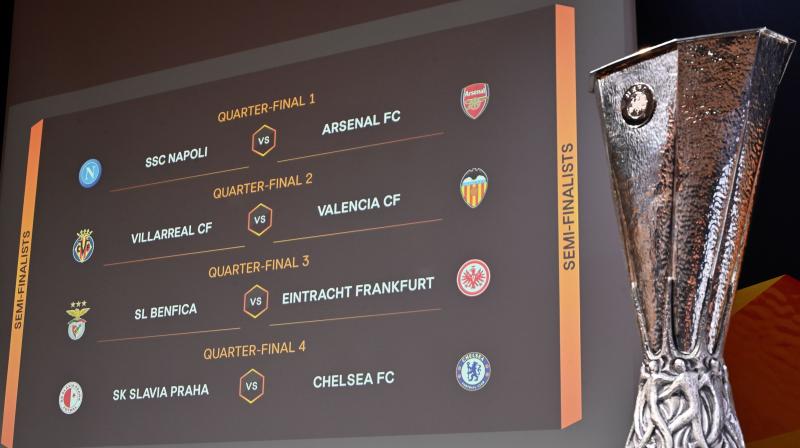UEFA to conduct meetings with clubs, leagues on Euro tournament future
UEFA is gathering views ahead of a meeting for the European club competitions will be discussed.

London: The future of the Champions League will be shaped in the coming weeks as UEFA President Aleksander Ceferin hosts talks with representatives of clubs and leagues.
UEFA, European soccer's governing body, is gathering views ahead of a meeting of its executive committee in May when the 2021-24 cycle for the European club competitions will be discussed.
The distribution of finances is yet to be decided but UEFA has repeatedly ruled out the imminent prospect of Champions League games moving to weekends, beyond the existing final slot, despite interest from clubs.
The European Club Association (ECA) leadership is due at UEFA headquarters in Nyon, Switzerland, on Tuesday.
A meeting with European Leagues organization was also planned for next week but it has been postponed because of the unavailability of a key official.
Details of the meetings were confirmed Sunday to The Associated Press by a person with knowledge of the situation who said there was no specific agenda. The person spoke on condition of anonymity because the meetings are confidential.
Ceferin and the 16 members of the UEFA executive committee can attend both meetings.
Two other ExCo seats are held by the ECA and European Leagues but their officials won't attend the meeting with UEFA which features their counterpart organization.
UEFA has already announced that it is launching a third club competition from 2021, below the Champions League and Europa League, after gaining approval from the executive committee in December.
Provisionally called UEL2, the competition will be played on Thursday nights —like the Europa League —with the intention of giving more countries the chance to be represented in European club competitions.
But it is the future of the Champions League that could spark some of the most fevered discussions. For now, UEFA has publicly said it won't move games for its flagship competition from their Tuesday-Wednesday slot to weekends.
World Leagues Forum chairman Christian Seifert, who is also chief executive of the Bundesliga, said in January that "the weekend must belong to national leagues" because they are the lifeblood of football. Seifert said legal action would be pursued if a "red line" was crossed and European games were played on regular dates of national leagues on weekends.
UEFA is under constant pressure from Europe's top clubs to maximize the Champions League, and playing weekend fixtures has long been seen as attractive to broadcasters in Asia and the Americas.
There is constant talk about Europe's leading clubs breaking away to form their own competition. Ceferin has said that while he leads UEFA, and Juventus president Andrea Agnelli heads the ECA, there will not be a Super League.
Such a competition would provide guaranteed places for Europe's leading clubs. ECA members Manchester United, Arsenal, Chelsea and Liverpool have endured spells out of the Champions League in recent years after failing to qualify through their domestic leagues or by winning the Europa League.
Seven-time European champion AC Milan last qualified for the Champions League for the 2013-14 season. Ceferin took office in 2016 within weeks of UEFA sealing a compromise Champions League deal that favored the big-four countries: Spain, Germany, England and Italy.
Each country was guaranteed four Champions League places each in the 2018-21 cycle, making a total of 16 spots rather than 11 previously.

